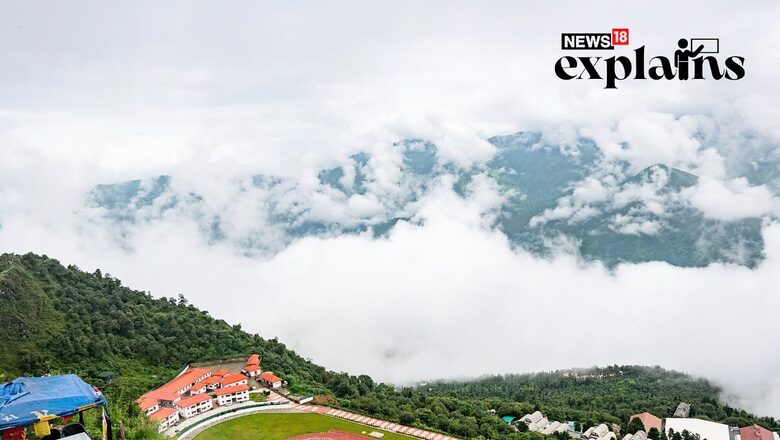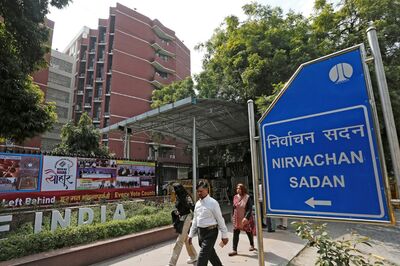
views
Every April 21, National Civil Services Day is observed. The Prime Minister of India honours officers from the central and state governments on this day for their remarkable services to public administration.
The civil service system serves as the foundation for the country’s administrative functions. It is the permanent executive branch of the Republic of India. The administrative departments of the government develop various policies and activities and civil servants are in responsible of carrying out all government policies and activities at the grassroots level. The Indian Administrative Services (IAS), Indian Police Services (IPS), Indian Foreign Services (IFS), and the core Group A and Group B services are all part of it.
So why was April 21 chosen for National Civil Services Day?
On 21 April 1947, India’s first Home Minister Sardar Vallabhbhai Patel addressed the first batch of Administrative Services probationers who constitute the “steel frame” of India at Metcalfe House, Delhi. Addressing the probationers Sardar Patel outlined the vision he had in mind with respect to the role that the civil servants were expected to play in independent India.
What Sardar Patel said while addressing the first batch of IAS probationers
He said, “It will be your bounden duty to treat the common men in India as your own, or to put it correctly, to feel yourself to be one of them and amongst them, and you will have to learn not to despise or to disregard them. In other words, you will have to adapt yourselves to democratic ways of administration”.
“Above all, I would advise you to maintain to the utmost the impartiality and incorruptibility of administration. A Civil Servant cannot afford to, and must not, take part in politics. Nor must he involve himself in communal wrangles. To depart from the path of rectitude in either of these respects is to debase public service and to lower its dignity. Similarly, no service worth the name can claim to exist if it does not have in view the achievement of the highest standard of integrity”.
From his words, it was evident that Patel placed civil servants at the center of the democratic governance of the state.
First Civil Service Day
It was in 2006 that 21 April was for the first time observed as Civil Services Day. Since then, it is a day when the work of civil servants is celebrated and acknowledged.
Then PM Dr. Manmohan Singh had said on the occasion, “central Civil Services are the backbone of the governance structure of our nation. They have played a vital role in the task of nation-building, right from the time we achieved independence, to the present day. It was Sardar Patel’s vision that the Civil Service should strengthen cohesion and national unity. He wanted a strong and vibrant federal administrative system in which the All India Services would play an important role. True to his conviction, the Civil Services have provided the framework for the administration of the country. The values of integrity, impartiality and merit remain the guiding principles of our civil services”.
Raison d’etre behind observing Civil Service Day
“It is an occasion for civil servants to rededicate themselves to the cause of citizens and renew their commitments to public service and excellence in work”.
The theme of Civil Services Day 2023
The theme of this year’s Civil Services Day is ‘Viksit Bharat’ — ‘Empowering Citizens and Reaching the Last Mile’.
Composition of Civil Services
Civil services in India are classified into three categories
A) All India Services (IAS)
B) Central Services
C) State Services
All India Services are the most coveted and prestigious services. It constitute of Indian Administrative Service (IAS) Indian Police Service (IPS) and Indian Forest Service (IFoS).
There are around 50 Central Services. The most sought-after and prestigious services are the Indian Foreign Service (IFS) and Indian Revenue Service (IRS).
The difference between All India Services and Central Services is that while the officers of All India Services are recruited and trained by the Central government, they are assigned to different states for the work. Whereas Central Service officers work under the exclusive jurisdiction of the Central government.
Constitutional Provisions
Article 308 to 314 in part XIV of the Constitution contains provisions with regard to All India Services.
Recruitment Process
Civil servants are recruited through Civil Services Exam (CSE) which is conducted by the Union Public Service Commission (UPSC) which is India’s central recruitment agency. The CSE is a three-stage exam consisting of an objective test called the preliminary exam which is of qualifying nature.
Then there is a subjective/written exam called the civil service mains exam in which the candidates have to select a subject of their interest apart from common general studies paper and essay paper. The third stage of the exam is an interview which is called a personality test.
Training
There are various institutes where the candidates selected for different services are trained. Initially, all selected candidates undergo foundational training at Lal Bahadur Shastri National Academy of Administration (LBSNAA) in Mussoorie, Uttarakhand. After completing the foundational training candidates, according to services allocated to them are sent to different institutes.
IAS recruits are trained LBSNAA for the entire two years of their training. IPS trainees move on to the Sardar Vallabhbhai Patel National Police Academy in Hyderabad. IFoS officers go to the Indira Gandhi National Forest Academy in Dehradun for their training. IFS are trained at Foreign Service Institute (FSI) in New Delhi. IRS officers are trained at the National Academy of Direct Taxes, Nagpur, or the National Academy of Customs, Excise & Narcotics, Faridabad.
Posts Civil Servants occupy
Civil servants play the most crucial role in the governance of the country as they constitute the permanent executive. Accordingly, they assume the most important administrative offices. IAS officers, starting from the sub-divisional magistrate, and chief development officers go on become to the district collectors, and the highest post they can hold is that of a cabinet secretary. Similarly, IPS officers starting from the additional superintendent of police to the inspector general of police go on to assume the officer director general of police and other para-military forces.
Civil servants because of the role they play in the governance of the country assume great importance and prestige.
Former Cabinet Secretary and one of India’s finest bureaucrats TSR Subramanian once told this author that “He (civil servants) is not just the prime implementer of government decisions; in practice, the senior civil servants in the state secretariats and at the center, are equal if not more important partners in the decision-making process”.
And, perhaps, this role of an implementer of government decisions and later as a decision maker makes civil service such a sought-after career.
Read all the Latest Explainers here




















Comments
0 comment